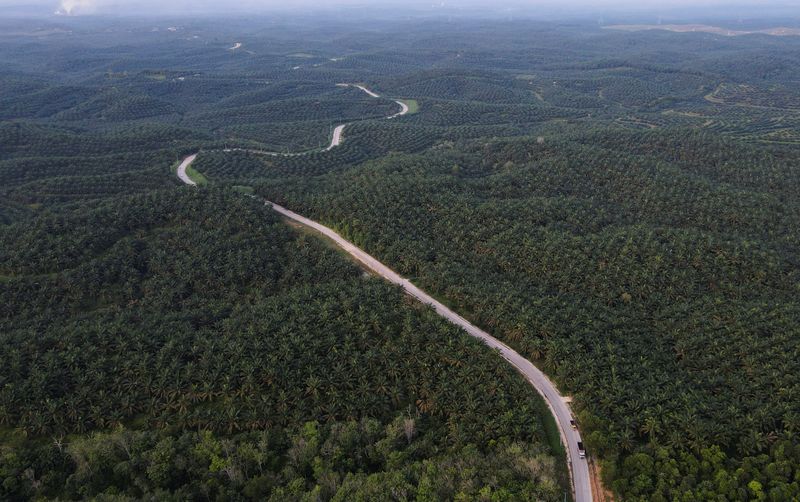By Naveen Thukral and Bernadette Christina
SINGAPORE/JAKARTA (Reuters) -A move by top palm oil exporter Indonesia to restrict shipments and boost domestic biodiesel consumption is set to squeeze global vegetable oil supplies already undercut by lower output in Southeast Asia and Latin America.
Edible oil buyers, including price-sensitive consumers in South Asia and Africa, will bear the brunt of the supply-side constraints that come just as demand is forecast to climb, with China easing COVID-19 controls and India boosting purchases.
Indonesia's new restrictions are another challenge for food-importing countries hurting from last year's red-hot inflation, which pushed prices of key staples wheat, corn and soybeans to all-time or multi-year highs.
"The implementation of (the) B35 mandate in Indonesia in 2023 definitely changes (the) global palm oil SND (supply and demand) situation," said Oscar Tjakra, a senior analyst at food and agribusiness research at Rabobank.
"I'm now expecting global palm oil SND will be in a slight deficit."
Indonesia's B35 mandate, the highest in the world, stipulates diesel sold in the country from Feb. 1 has to contain 35% palm-based fatty acid methyl ester. By comparison, Malaysia has partially implemented a 20% biodiesel blending mandate and other countries have measures calling for single and double digit percentages of bio content for diesel or gasoline.
The Indonesia Biofuel Producers Association says the B35 mandate will take up 11.44 million tonnes in palm oil this year, up from 9.6 million in 2022 under the country's B30 measure.
Indonesia, producer of more than half of global palm oil supplies, also tightened trade rules this year, allowing exporters to ship just six times their domestic palm oil sales volume, less than a fourth-quarter 2022 ratio of eight times.
"Indonesian palm oil export definitely will drop, as output will decline, domestic consumption will increase," Fadhil Hasan, an Indonesian Palm Oil Association (GAPKI) official, told Reuters.
Indonesia produced 51.3 million tonnes of palm oil in 2022 and exported 33.7 million, GAPKI estimated. In 2023, palm oil output is expected at 50.82 million tonnes and exports 26.42 million, it said.
On Thursday, Malaysia said it could stop exporting palm oil to the European Union in response to a new EU law aimed at protecting forests by strictly regulating sales of the product.
Malaysian benchmark palm oil futures are expected in a range of 4,000-4,200 ringgit ($920-$970) per tonne this year, according to the Malaysian Palm Oil Board Director General Ahmad Parveez Ghulam Kadir.
That's lower than a record average of 4,910 ringgit in 2022, with prices skewed higher by disruption to edible oil supplies and distribution by Russia's invasion of Ukraine. But it's still comparatively high. Prices averaged 3,260 ringgit a tonne between 2018 and 2022.
On Friday, Malaysian palm futures were trading near a three-week low around 3,860 ringgit. [POI/]
Other threats to edible oil supplies include Argentina's worst drought in 60 years, which is forecast to cut its soybean output to 41 million tonnes, down from 48 million previously estimated.
STRONG DEMAND
India's palm oil imports in December jumped 94% from a year earlier to a record high as the product's higher discount to rival vegetable oils led refiners to boost purchases.
"Palm oil's discount to rival oils is around $300 a tonne, we expect this discount to narrow to around $200 by March," said Sandeep Bajoria, chief executive of Sunvin Group, a vegetable oil brokerage.
"But India's strong demand for palm oil will continue as it is still the cheapest edible oil."

Palm oil purchases by China, the world's second-largest importer, are also expected to climb this year, after dropping sharply in 2022 because of Beijing's then strict COVID controls.
($1 = 4.3350 ringgit)